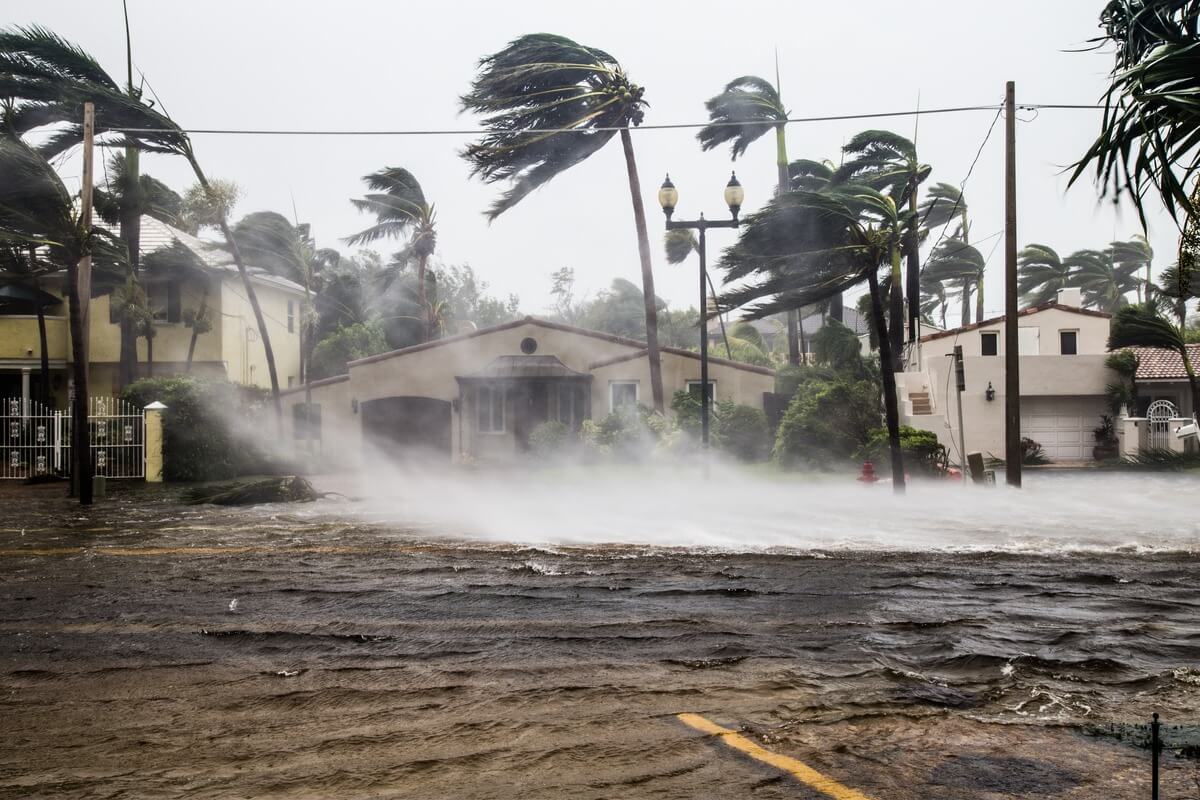
Partner at AKD Lawyers
Practice Areas: Personal Injury

When hurricane season ends, most Louisiana homeowners breathe a sigh of relief. But winter, the calm between storm cycles, is actually the best time to prepare for the next one. Reviewing your hurricane insurance coverage in Louisiana during the cooler months ensures that you have time to identify gaps, update your policies, and make important adjustments before insurers limit changes during storm season.
The Winter Advantage: Why Timing Matters
Hurricane season in Louisiana officially runs from June through November. Once storms begin forming in the Gulf, insurance companies often place temporary restrictions on updating or purchasing new policies. That’s why winter home insurance review is more than a smart habit, it’s a financial safeguard.
During the off-season, you have access to your insurer, time to compare coverage options, and an opportunity to calculate how much protection you really need. Winter also offers a stable environment for assessing home upgrades or changes that might affect your policy, such as new roofing, siding, or property additions.
The Atlantic hurricane season officially runs from June 1 through November 30. Policy updates and new flood coverage applications can take up to 30 days to become active making winter the best time to prepare.
Start with a Home Inventory and Risk Assessment
Before you look at your insurance paperwork, take a fresh look at your property. A detailed home inventory is the foundation of accurate insurance coverage. Photograph every room, list valuable items, record serial numbers, and save receipts where possible. This helps when filing a claim and ensures you’re covered for the true value of your belongings.
Digital inventory apps recommended by FEMA or the Louisiana Department of Insurance can simplify this process. Many homeowners forget to include things like outdoor equipment, tools, or home office electronics items often overlooked but expensive to replace.
Updating your inventory also allows you to check whether your policy’s personal property limits are still sufficient. Home values and replacement costs change each year, so your policy should evolve with them.
“A comprehensive home inventory is one of the simplest, most effective ways to speed up insurance claims after a disaster.”

Understand What Your Policy Covers and What It Doesn’t
Many Louisiana homeowners are surprised to learn that their standard homeowners insurance does not cover everything related to hurricanes. While it may cover structural damage or personal belongings, it typically excludes flood and windstorm damage.
Flood insurance, for instance, must be purchased separately through the National Flood Insurance Program (NFIP) or a private insurer. Likewise, some policies require an additional rider for windstorm protection.
Standard homeowners insurance does not cover flood damage caused by storm surge or rising water. Flood coverage must be purchased separately through the National Flood Insurance Program (NFIP) or a private carrier.
Another area to examine closely is your deductible. A hurricane deductible often works differently than your regular deductible, it’s usually a percentage (2%–5%) of your home’s insured value rather than a flat dollar amount. That means on a $300,000 home, you could pay $6,000 to $15,000 out of pocket before insurance coverage begins.
Louisiana homeowners should also review exclusions such as sewer backup or foundation damage, which are not automatically covered. Understanding these fine-print details helps avoid unpleasant surprises after a storm.
Under La. R.S. §22:1892, insurers in Louisiana must pay approved claims within 30 days of receiving satisfactory proof of loss or face penalties for delay.
Key Policy Details to Revisit During the Off-Season
The calm of winter gives you time to go line by line through your insurance documents. Check your coverage limits, your deductible structure, and whether you have coverage for additional living expenses (ALE) which covers hotel stays, meals, and necessities if your home becomes uninhabitable.
If you’ve renovated recently, upgraded roofing, or replaced siding, those improvements can increase your home’s replacement cost. Adjusting your policy now ensures your new investment is fully protected.
According to the Louisiana Department of Insurance, fewer than 40% of homeowners statewide carry flood insurance, leaving most residents exposed to uncovered losses.
When evaluating rebuilding coverage, make sure your insurance reflects reconstruction costs, not market value. The two are very different market value includes land and location, while rebuilding coverage accounts for materials, labor, and permits needed to rebuild after a disaster.
Explore Supplemental Coverage Options
Every property is unique, so it’s important to evaluate optional coverage types that can help fill common gaps. In Louisiana, these add-ons can make a big difference after a hurricane.
|
Insurance Type |
What It Covers | Included in Standard Policy? |
Where to Get It |
| Homeowners Insurance | Structural damage, personal property | Partially (excludes floods/windstorms) | Private insurers |
| Flood Insurance (NFIP) | Rising water, storm surge | No | NFIP or private insurers |
| Windstorm Coverage | Roof/siding damage, wind-blown debris | Sometimes (check exclusions) | Private insurers |
| Sewer Backup | Overflow from drains/sewers | No | Add-on coverage |
| ALE Coverage | Temporary housing, meals, basic needs | Yes (limited) | Included in policy |
Depending on where you live, especially in flood-prone parishes like Jefferson or St. Bernard, you may want to combine multiple policies to achieve full coverage. This layered approach can help you avoid underinsurance, one of the most common issues Louisiana homeowners face.
Preparing for the Next Hurricane Season
A seasonal insurance checklist can keep you organized as you prepare for Louisiana’s unpredictable weather. Review your policies every winter to ensure coverage matches your property’s current condition and value.
Two simple but effective steps include:
- Verifying that your flood policy is active and up to date.
- Documenting all upgrades or major purchases to avoid underreporting during future claims.
Homeowners can also use resources from FEMA, NFIP, and the Louisiana Department of Insurance to better understand risk maps and community flood ratings. For families who faced claim challenges last season, consulting a professional for claim guidance or policy review may provide clarity.
Even a New Orleans hurricane Ida property damage lawyers familiar with insurance claim processes can often explain how adjusters and insurers interpret policy terms.
FAQs
Why is winter the best time to review hurricane insurance?
Winter allows time to review coverage, adjust policies, and process changes before hurricane season restrictions begin.
What’s the difference between flood and hurricane insurance?
Flood insurance covers rising water; hurricane coverage focuses on wind and storm damage. Both may be needed for complete protection.
How long does it take for flood insurance to become active?
NFIP policies usually take 30 days to start after purchase, making early winter enrollment important.
What should homeowners include in a home inventory?
List furniture, electronics, appliances, tools, and receipts with photos and serial numbers for accurate valuation.
Are there Louisiana-specific insurance laws to know?
Yes. La. R.S. §22:1892 requires insurers to pay valid claims promptly or risk penalties for delay.
What are the most common coverage gaps after hurricanes?
Flood, sewer backup, and temporary living expenses are often missing from standard policies.
Conclusion
Winter gives Louisiana homeowners a unique opportunity to prepare for the next hurricane season before insurers become busy and coverage limits freeze. By reviewing your home inventory, checking for policy exclusions, and updating your flood and windstorm protection now, you reduce the risk of unexpected financial strain when the storms return.
If you discover coverage gaps or need help understanding your insurance options, Alvendia, Kelly & Demarest Law Firm offers guidance on hurricane insurance and claim preparation.
Contact the firm today to schedule a free consultation and ensure your home and family are ready for the next storm.
Categories

In 2003, after being dissatisfied with the quality of legal care for victims of car accidents, Roderick ‘Rico’ Alvendia sought to establish a new firm focused on providing high-quality legal services to aid injured victims and their families. J. Bart Kelly, sharing Rico’s passion for upholding justice, joined the firm later that year, and established a partnership.







